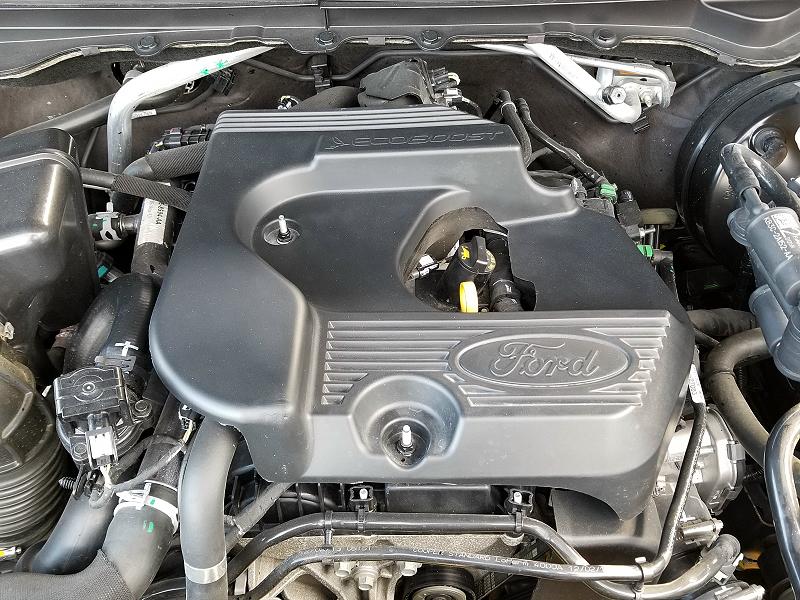Is the 2.2 Ford Ranger Engine the Right Fit for Your Driving and Work Needs?
Is the 2.2 Ford Ranger Engine the Right Fit for Your Driving and Work Needs?
Blog Article
What Makes a Vehicle Engine Run Smoothly: Leading Tips for Optimal Care
The smooth operation of an automobile engine is essential to both performance and longevity, making optimum treatment a necessary obligation for automobile owners. What certain actions should you focus on to guarantee your engine stays in peak condition?
Normal Oil Modifications
One of one of the most critical elements of auto upkeep is ensuring your engine obtains normal oil modifications. Engine oil lubricates inner elements, decreases rubbing, and helps keep ideal operating temperatures. With time, oil breaks down because of heat, impurities, and the natural byproducts of burning, causing decreased efficiency and possible engine damage.
The majority of makers recommend transforming the oil every 5,000 to 7,500 miles, but this period can vary based on driving conditions and oil kind. Artificial oils may permit for longer intervals in between changes. Normal oil changes not just improve engine performance yet also enhance fuel performance, as clean oil advertises smoother procedure.
Overlooking oil adjustments can result in sludge build-up, which impairs blood circulation and can bring about extreme engine issues. It is crucial to check oil levels routinely and keep an eye on for any unusual modifications in shade or uniformity, which could suggest contamination or deterioration.

Maintaining Coolant Degrees
Keeping correct coolant degrees is necessary for preventing engine overheating and ensuring optimal performance. The coolant, commonly a mixture of water and antifreeze, circulates through the engine, taking in warm and avoiding thermal tension. Inadequate coolant can result in raised engine temperature levels, which may cause severe damages or also overall engine failure.
To keep optimal coolant levels, frequently examine the coolant tank, typically located in the engine bay. Ensure the coolant is filled to the advised mark, as shown in your automobile's proprietor handbook. It is recommended to check the levels at the very least as soon as a month or soon trips, especially throughout extreme weather conditions.
If you see that the coolant degree is consistently low, there might be a leak in the air conditioning system, which must be attended to immediately to stop more difficulties. 2.2 ford ranger engine. Furthermore, flushing the coolant system every 2 to three years can help get rid of any type of accumulated particles and guarantee efficient warmth exchange
Checking Air Filters

It is advised to check the air filter every 12,000 to 15,000 miles, or a lot more frequently if driving in damaging or dusty problems. An easy aesthetic inspection can usually reveal whether the filter is filthy or harmed. It ought to be changed promptly. if the filter appears tarnished or has noticeable dirt accumulation.
Making use of a top notch air filter designed for your particular automobile version can even more enhance engine performance. Additionally, some lorries may gain from reusable filters that can be cleaned and reinstalled, supplying a ecologically pleasant and cost-efficient option.
Inspecting Flicker Plugs
Ignition system are crucial parts of a lorry's ignition system, straight influencing engine efficiency and effectiveness. They develop the trigger that sparks the air-fuel blend in the combustion chamber, helping with the engine's power generation. Normal evaluation of spark plugs is crucial for keeping optimum engine function and preventing prospective issues.
During an examination, seek indications of wear or damage, such as cracks, carbon buildup, or excessive void widening. A healthy ignition system typically shows a light brownish or tan color. Dark residue or oil down payments can indicate inappropriate combustion, while a white or blistered appearance might suggest overheating. Both problems need check this immediate focus to stop further engine damages.
It's recommended to inspect spark plugs every 30,000 miles, or as advised in your lorry's owner guidebook. Furthermore, take into consideration replacing them according to the supplier's guidelines, as old or used stimulate plugs can bring about misfires, decreased gas efficiency, and boosted emissions.
Surveillance Tire Pressure
Making sure correct tire pressure is a critical element of automobile safety and performance. Under-inflated tires can lead to decreased gas effectiveness, enhanced tire wear, and endangered handling. Conversely, over-inflated tires can decrease grip and raise the risk of blowouts. Regular tracking of tire stress is essential for optimal car operation.
Tire pressure should be checked at least when a month and previously lengthy trips. Utilize a trusted tire stress scale to gauge the stress when the tires are chilly, ideally before the car has been driven for a minimum of 3 hours. Refer to the car's owner manual or the placard located on the driver's side door jamb for the manufacturer's recommended stress degrees.
It is very important to keep in mind that tire pressure can vary with changes in temperature; a decline of 10 ° F can cause a 1-2 psi reduction in pressure. Additionally, aesthetically evaluate tires for any type of indications of wear or damages throughout your surveillance routine. Maintaining correct tire stress not only enhances lorry safety and security however also boosts gas effectiveness and prolongs tire life, ultimately adding to a smoother engine efficiency.
Final Thought
In final thought, maintaining a cars and truck engine's smooth procedure calls for diligent attention to numerous key factors. Eventually, a positive approach to engine treatment is vital for making useful source sure reliability and capability over time.
One of the most essential elements of car maintenance is ensuring your engine obtains regular oil changes. Engine oil lubricates interior parts, minimizes friction, and helps maintain ideal operating temperature levels. Normal oil adjustments not only improve engine performance but likewise improve gas effectiveness, as tidy oil Continue advertises smoother procedure.
Inadequate coolant can lead to boosted engine temperature levels, which might create extreme damages or also complete engine failing.

Report this page